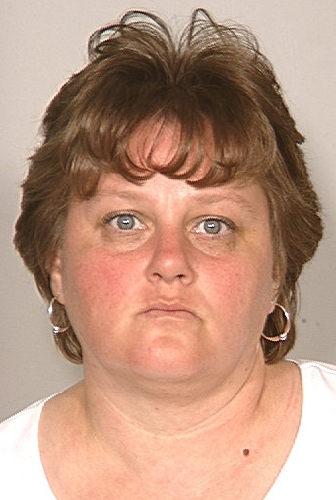Mother charged with murder, child abuse in death of son
By any measure, 15-year-old Patrick Atkins died a ghastly death.
Vomiting for weeks, nose bleeds, weakness: all were symptoms of the kidney failure that Patrick's mother had been warned about for years.
By the time she took him to the emergency room at University Medical Center on a Friday afternoon in February, he was having difficulty breathing. Police said his mother told doctors that he didn't have any history of chronic kidney disease, although she knew he'd been living with it since he was a small boy.
A doctor, skeptical, ran tests for it anyway, but it was too late. Patrick, a Western High School student, died soon after.
Police this week, after interviewing doctors and going through Patrick's history, arrested his mother, 40-year-old Lena Marie Anderson, on charges of murder and child abuse.
There had been warning signs. On five occasions over 10 years Child Protective Services was called over concerns about Patrick's welfare.
"I'm sickened by this," said Donna Coleman, co-founder of Children's Advocacy Alliance.
Anderson's arrest report and a death disclosure form regarding Patrick's death required by the state detail a slow decline in the boy's health.
Early in his life there had been concerns about his mother. In his first 20 months, Anderson had been referred to CPS three times.
In the second referral, the agency found claims of improper supervision and environmental neglect to be substantiated. "In-home supervision and services" were provided and the case was closed nine days later.
Five months later, another claim of improper supervision was substantiated. "In home services" were offered, but records don't show that they were provided. The case was closed four days later.
By the time he was diagnosed with chronic kidney disease at age 4, Patrick had suffered permanent kidney damage and was placed on multiple medications and had surgery to use a catheter.
Doctors explained to his mother that if he didn't get a new kidney or didn't continue with the medical treatment, Patrick would die of kidney failure, the arrest report stated. He was prescribed several medications to prolong the life of his kidneys, and his catheter had to be replaced four times each day.
In 2002, his school nurse contacted authorities after his mother hadn't provided the school with proper catheters. The nurse noted that Anderson had been "evasive" regarding how long he had been without proper catheters, the report said. Anderson then purchased the proper catheters and a case worker found the claims unsubstantiated.
A year later, one of Patrick's doctors reported that Anderson had missed an appointment and failed to comply with the doctor's orders for lab testing. The case worker had Anderson reschedule the appointment and the case was closed, the report said.
All medical treatment for Patrick ceased in 2006.
He had no more doctor's visits. Anderson made a "conscious decision" that maybe his condition would change, the report said. She told police after his death that Patrick didn't like taking the medication so she stopped giving it to him.
Instead of her changing out his catheter, he changed it -- sometimes hastily, she felt -- so he could get back to playing outside or playing video games.
His two doctors noted his absence but didn't report it to authorities, the report said.
Efforts by the Review-Journal to reach Patrick's father -- who police said had voiced concerns about the boy's care to one of his doctors -- were unsuccessful. Children in Patrick's apartment complex near Charleston and Decatur boulevards didn't seem to know him.
A next-door neighbor to his second-floor apartment noted that he was very polite and active.
"I never saw any of the disabilities," said Judy Jenkins. "Not the way he ran up those stairs."
Child Protective Services spokeswoman Christine Skorupski said she couldn't comment on Patrick's past cases.
She said the agency has made some changes since the 2008 death of Jason Rimer, a 4-year-old with a genetic disease who died after his parents allegedly left him in a sport utility vehicle for 17 hours.
The agency now sends case files with three or more referrals to a manager for review, and the case receives special treatment. But the agency does not reopen old cases, such as Patrick's, that have multiple referrals.
Similar cases of neglect have surfaced over the years, notably the 2004 arrest of Cheryl Botzet for failing to treat her 11-year-old diabetic daughter who died. She is facing a new trial on a murder charge.
In the last three weeks of Patrick's life, he was vomiting, fatigued, and missing school, police said. Anderson took him to a Southwest Medical Associates facility for treatment for a urinary tract infection, but didn't tell doctors about his chronic kidney disease.
Coleman said the failure to act on warning signs were typical of the way CPS handles cases. She said the agency should do more to protect special needs children.
"If you're a child and you're able-bodied, and you get a CPS case, you might have a shot at making it," Coleman said. "But if you're not able-bodied, unfortunately, those are the headlines."
Contact reporter Lawrence Mower at lmower@reviewjournal.com or 702-383-0440.

















